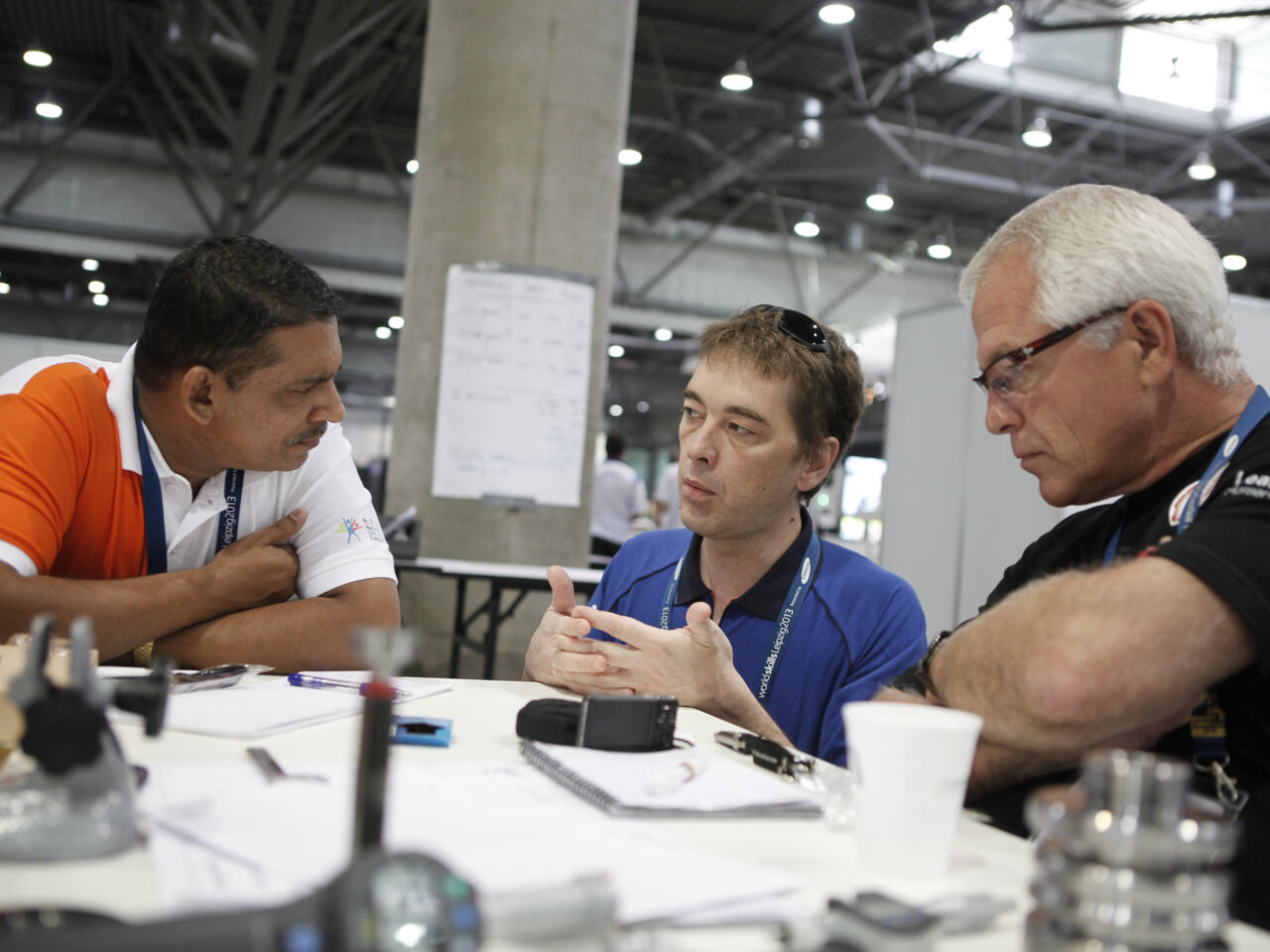21 September 2022
How Skill Management Teams are adapting to WorldSkills Competition 2022 Special Edition
Organizing the decentralised event, held over 12 weeks in 15 countries and regions, presents both challenges and opportunities.

WorldSkills Competition 2022 Special Edition sees the WorldSkills global network working together to host skill competitions across 15 countries and regions. In the three months since WorldSkills Shanghai 2022 was cancelled due to the pandemic, Skill Management Teams have adapted plans developed over the last two and a half years to work with the new venues, while maintaining the high standards of WorldSkills Competitions.
Skill Management Teams are responsible for the management of an official skill competition, and generally include the Skill Competition Manager, the Chief Expert, and the Deputy Chief Expert. From redefining the infrastructure list and re-doing Test Projects to re-engaging Experts around the world to get Competitors back to training, the teams have been busy making this Special Edition a reality.
“They were 100% on board straight away, which is fantastic,” says Jane Stokie, Director of Skills Competitions, WorldSkills International. “When we look at what they have done over the last weeks pivoting from a skill competition ready to execute differently, it’s an amazing amount of work together with the Hosts.”
“Skill Management Teams were appointed to their respective positions because of their leadership skills and those have shone throughout the last weeks. They know the objective is to give young Competitors a great experience, so they had their mind and their heart in the right place from the very beginning.”
Each skill competition has a Test Project that describes the work to be completed by Competitors to demonstrate occupational excellence. With different or less infrastructure available in the new locations, and fewer Experts available in some skills, the teams have had to look at the Technical Description and review what would be possible to assess within the new format, while ensuring the marking scheme aligns with the WorldSkills Occupational Standards.
“Some have chosen not to use the Test Project initially designed for WorldSkills Shanghai 2022 so it can be used at WorldSkills Lyon 2024, where the full infrastructure will be available. And then in other skills, they might have modified the modules that are there. Also, some of the competitions are only three days instead of four days, so they’ve had to reduce the number of hours that they are competing,” explains Jane.
The virtual participation of some members of the Skill Management Team is another unprecedented feature of WorldSkills Competition 2022 Special Edition. The skill of Prototype Modelling – which took place in Bern, Switzerland from 7 to 10 September – saw the Chief Expert and the Deputy Chief Expert leading the skill on the ground with virtual support from the Skill Competition Manager, who was unavailable to travel.
The challenges posed by the event’s unique format have also opened opportunities for WorldSkills International to reconsider previous formats with an eye to improving sustainability and reducing the resources required. For example, more skill competitions will be organized in shifts, allowing Competitors to complete their Test Projects without requiring as much equipment in the workshop.
“From an infrastructure perspective, skill competitions will run to the high quality that we’ve become accustomed to but with less variety available,” says Jane, noting that this aligns with WorldSkills policies as any infrastructure needs to be available for all Competitors to train with. “As a long-standing organization, we cannot compromise on quality, on processes already in place, communication, transparency. In summary, the pillars of WorldSkills.”
Thanks to the commitment of our Partners and Members, 15 Host countries and regions will organize 62 skill competitions between 7 September and 26 November 2022 for WorldSkills Competition 2022 Special Edition.